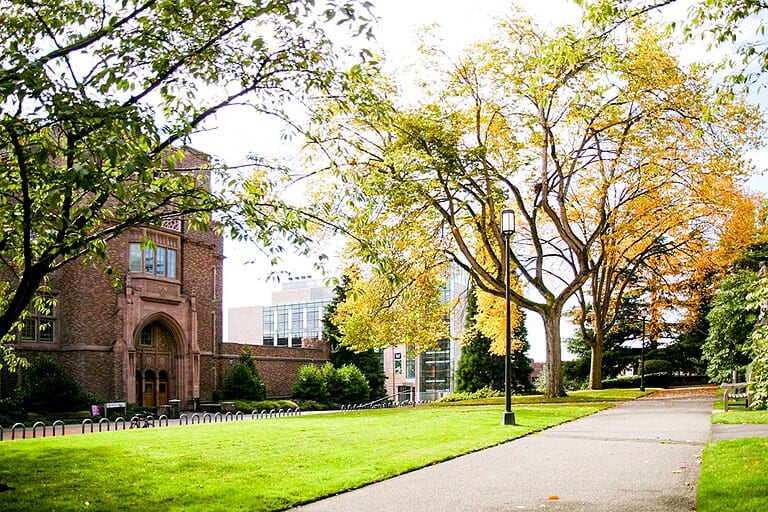As college costs rise, families have begun to really consider the financial side of selecting a school. Students increasingly base their college choice on both academic and financial fit. Finding a financial fit means selecting a school with an affordable net price (the price that appears on the college bill after taking into consideration all grants and scholarships). It also includes looking for ways to reduce the overall costs. There are several options for students looking to decrease their college price tag.
Credit-by-Exam
Credit-by-exam, sometimes referred to as a prior learning assessment, allows you to earn college credits at a discount. The most common examples are Advanced Placement (AP)® or International Baccalaureate (IB) courses that, with a qualifying score on an exam, could result in college credits. The cost of an AP exam is $94. Compared to the cost of a college course, which easily can cost thousands of dollars, the AP exam is a bargain.
There’s less familiarity with the College Board’s College-Level Examination Program (CLEP®) or Prometric’s DSST exams. Both provide opportunities to sit for an exam at a minimal cost (under $100) and receive college credits for qualifying scores. DSST features 33 examinations in college subject areas that are comparable to the final or end-of-course examinations in undergraduate college courses. CLEP offers 35 exams in five categories: Composition and Literature, World Languages, History and Social Sciences, Science and Mathematics, and Business. According to College Board®, an adult student who earns 15 CLEP credits to apply toward a degree could save nearly $5,000 at the average public 4-year institution and more than $17,000 at the average private non-profit institution.
Challenge Exams
Some colleges also offer their own challenge exams, an arrangement with an academic department to assess specific knowledge of an existing course’s content. Earning course credit through challenge exams is equivalent to passing a cumulative, end-of-the-term examination at most colleges.
Dual Enrollment
Dual enrollment programs are offered to high school students that are academically qualified to take college-level classes at Massachusetts public higher education institutions. These programs allow students to earn college credit while at the same time working toward their high school diploma. The cost for these courses is reduced from the standard course rate and can be a money-saving way to earn college-level credit. You can learn more about Dual Enrollment Programs by visiting the Massachusetts Department of Higher Education website or by checking in with your high school to determine if there are programs available locally.
Transfer Agreements
One way to reduce the overall cost of a college education is to begin study at a community college where students can earn an associate degree at a much lower cost, then transfer on to a four-year college to complete their bachelor’s degree. Massachusetts has had transfer agreements between two-year and four-year colleges for many years. Students can visit the Massachusetts Department of Higher Education’s website for MassTransfer to review the numerous transfer opportunities and benefits that exist within the public higher education system.
In addition to transfer within the public higher education system, there are many community colleges that have transfer agreements with private colleges and universities as well. These programs allow credits earned at a community college to be transferred to the college or university for progress toward a bachelor’s degree.
Regardless of whether a student plans to stay within the public system or transfer to a private college, the student should work closely with their academic advisor to understand the details of the transfer agreement and exactly what credits will be accepted at the four-year school.
College Partnerships
In addition to the benefits provided by MassTransfer, colleges today are working hard to create partnerships that allow a student to transition seamlessly from a community college to a four-year institution and save money. One example of such a program is a partnership between Worcester State and Fitchburg State Universities and Quinsigamond and Mount Wachusett Community Colleges. These colleges have come together to provide an incentive for students to obtain both associate and bachelor’s degrees for $30,000 in certain majors. You can find more information on this program by visiting the college websites.
Tuition Break
New England residents can enroll at regional public colleges and universities at a discount thanks to the Tuition Break program provided by the New England Board of Higher Education (NEBHE). Students are eligible for the program when they enroll in an approved major that is not offered within their own state’s public higher education system. There are hundreds of majors that qualify, so take some time to visit the Tuition Break website and learn more.
Class Selection
Registering for classes as soon as possible is another great way to reduce college costs. All too often, students are shut out of a required course because they registered too late. For those students required to take a full course load to maintain their financial aid, registering late may result in registering for a class that’s not necessary for graduation. And some classes are not offered every semester, or even every year. Meaning if a student is unable to register for a class needed during the final year of college, the student might have to enroll for an extra semester.
Stick with a Major
Finally, students should think carefully and strategically before changing their major. It could result in graduating with way more credits than required. That’s a loss of time and money, especially if students wait until later in their college career to make the change.
College is a significant investment for any family. Taking advantage of available programs and cost-saving measures, and being smart about course planning, can reduce the overall price tag and make an affordable college degree more within reach. If you have questions about paying for college, reach out to MEFA anytime at [email protected] or (800) 449-MEFA (6332).









